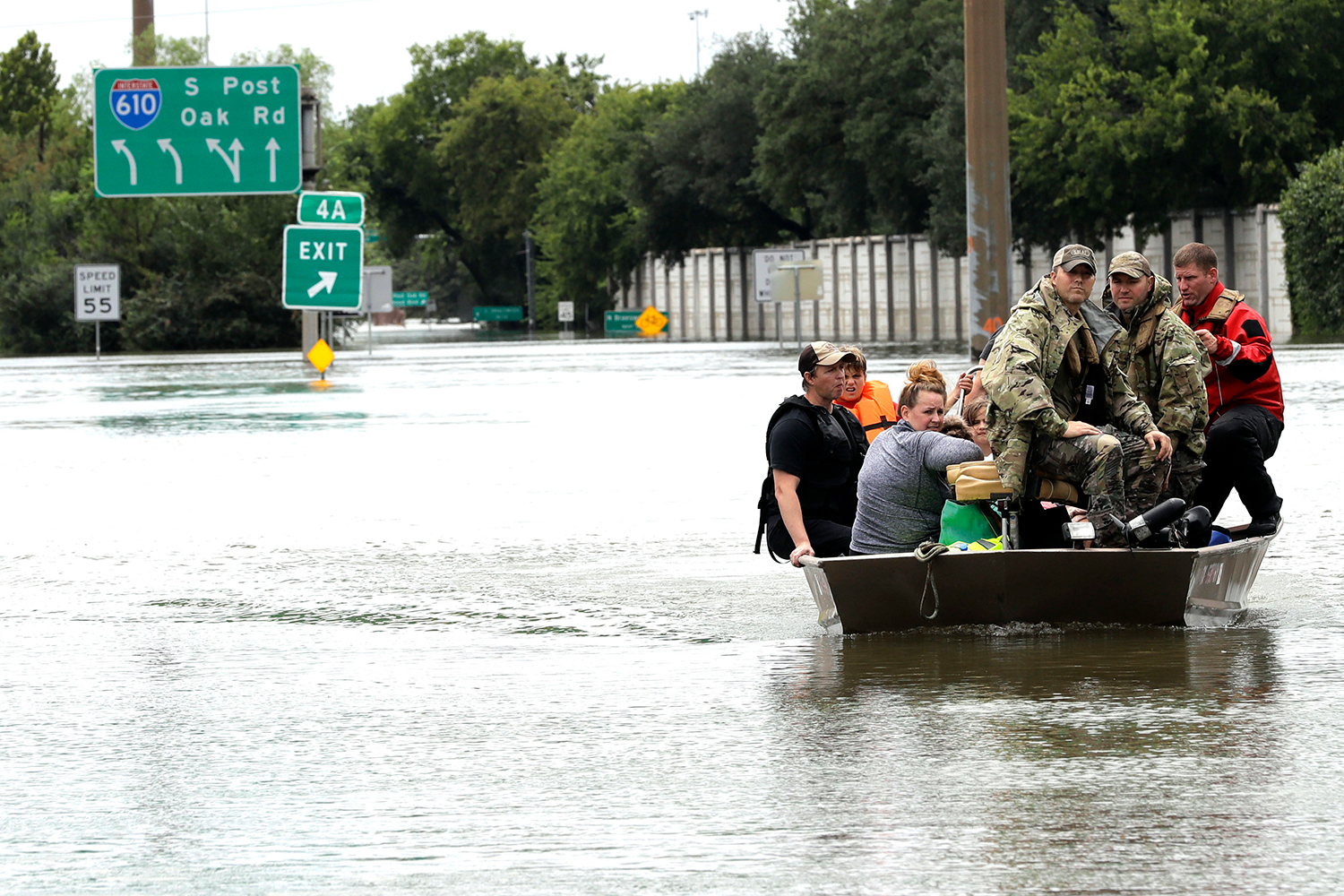Advertisement
Harvey And The Hazards Of Huge Storms
ResumeWith guest host Sacha Pfeiffer.
Harvey wreaks havoc on the Texas Gulf Coast. We’ll have the latest and talk with top meteorologists about big storms now.

Rain is falling in Houston and shows no sign of letting up. The aftermath of Hurricane Harvey is buckets of water coming down as the storm sits, stalled, on southeast Texas. That’s leading to catastrophic flooding. We’ll talk about the science behind this disaster and whether climate change is playing a role. This hour, On Point: as the Houston area braces for as much rain in a week as it usually gets in a year, how historic is this storm and why is it happening? -- Sacha Pfeiffer.
Guests
Andrew Schneider, reporter for Houston Public Media. (@ASchneider_HPM)
John Nielsen-Gammon, Texas state climatologist. Professor of atmospheric sciences at Texas A&M University.
Marshall Shepherd, director of the Atmospheric Sciences Program at the University of Georgia. Host of the talk show “Weather Geeks” on the Weather Channel. (@DrShepherd2013)
Douglas Brinkley, professor of history at Rice University in Houston. Author of "The Great Deluge: Hurricane Katrina, New Orleans, and the Mississippi Gulf Coast."
From The Reading List
The Houston Chronicle: Tropical Storm Harvey unleashes historic flooding in Houston area — "Tropical Storm Harvey unleashed the worst flooding in Houston history, dumping at least a foot of rain on most of the city, overflowing bayous and leaving some neighborhoods deep in floodwater. 'It's catastrophic, unprecedented, epic — whatever adjective you want to use,' said Patrick Blood, a National Weather Service meteorologist. 'It's pretty horrible right now.'"
Forbes: Four Dangers Of Hurricane Harvey That May Not Be Obvious To The Public — "To complicate matters, the most dangerous aspect of this hurricane may be days of rainfall and associated flooding. Many of our best models suggests that Harvey will make landfall, which brings immediate problems, and then linger for days as a weak tropical system. This danger may be lost on the average citizen that mistakenly perceives the danger to be "over" once the storm makes landfall. Some early model guidance suggests that a weakened version of Harvey could remain parked over the area for almost a week. The National Weather Service is estimating over 15-20 inches of rainfall."
The New York Times: The Relationship Between Hurricanes and Climate Change — "The relationship between hurricanes and climate change is not simple. Some things are known with growing certainty. Others, not so much. The most recent draft of a sweeping climate science report pulled together by 13 federal agencies as part of the National Climate Assessment suggested that the science linking hurricanes to climate change was still emerging. Looking back through the history of storms, “the trend signal has not yet had time to rise above the background variability of natural processes,” the report states."
This program aired on August 28, 2017.